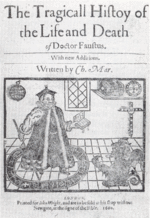JON KANEKO-JAMES looks back on the days when Demonology and the Occult was accepted as scientific fact taught at universities
Believe it or not, the intelligentsia have always had a ‘thing’ that they felt set them apart from everyone else. When I was a teenager, it was Postmodernism, later it was the Sceptics movement. In the early modern period, it was Demonology.
Obviously, they didn’t call it Demonolgy. Well, the practitioners didn’t. They called them ‘experiments’. It was just that a lot of those ‘experiments’ involved standing in the middle of a magical circle calling out to various angels and devils to send a Lord of Hell your way.
Part of the reason that Demonology, or Nigromancy (i.e. black magic) was so pervasive was there were echoes of it accepted in the science of the time. Astrology and the physical influence of the Astrological planets was accepted to be fact. The only debate was about whether it was okay for man to take hand in his own destiny by manipulating the power of the planets through magical intervention.
” … University students would often be made clerics as a part of their education … the most common ‘token’ clerical roles given to students would be Lector or Exorcist”
Another factor was the university system of the time: university students would often be made clerics as a part of their education. This gave them the entitlement to shave their head in a tonsure and claim access to the special clerical courts. Not only that but the most common ‘token’ clerical roles given to students would be Lector or Exorcist. The role of Exorcist especially would come with rudamentary training in the nature of ritual: how to open a circle, cleanse a space and perform the main rites of the Church, including exorcism.
Not only that, but there was a certain laxity to the attitudes of the bohemian intelligentsia of the time. I made a (shoddy) translation of the German/Latin introduction to Wierus’ De praestigiis daemonum, which is possibly one of the only magical books of the time to have the balls to come out and say that Witch Hunting was wrong. It also said something along the lines of, “But God is a good, and whatever harm you shall do, he can but take you back into his arms on your deathbed.” Or something like that. I’ll be honest, I suspect my translation was somewhere well below Google Translate (and I can’t 100% remember if it was De praestigiis daemonum or the Grimorum Verum.)
Anyway, the important thing is that there were plenty of people, messing around with Demonology, who thought it was no big deal.
“Christopher Marlowe, a gay, atheist spy … he’s a bad boy”
Into this situation, comes the playwright Christopher Marlowe. He’s a bad boy: one of the Elizabethan Rat-Pack. He’s an out gay at a time when that could get you killed, and not by drunken idiots on a Saturday night. He’s possibly a spy, an Atheist by their standards, and most importantly he’s a contrary bastard.
The contrary bastard part is the most important part for us. His ‘Atheism’ is debatable by our standards. By theirs he was Richard Dawkins’ hardcore older brother, but the worst thing he’s known to have said is that although he believed in God, he didn’t believe in a literal heaven or hell. He thought that whatever happened after death, it wasn’t a perfect recreation of this world where everyone sat at the feet of God and sang hosanna. He was also a fully-trained cleric, having at one time intended to go into the clergy (before the gayness, play writing and spying got to be a full time job.)
So, Marlowe had been to university and didn’t quite think the same way as everyone else. It was pretty inevitable that he wouldn’t buy into their bullshit. Thus we get the amazing play that is Doctor Faustus.
Not that it was the only Faustus to exist. Faustus was a Germany and Polish folk hero, whose story was just becoming popular when Marlowe would have been quite young. It was the tale of a Doctor come magician who made a pact with the devil and the shenanigans he gets up to with his demon, Mephistopheles. In fact, there was a whole Faust franchise in Germany, operated by the Johann Spies, who would just grab any old myth and shove Faustus and Mephistopheles into it.
“Marlowe writes his play as a direct reply to those sneering Elizabethan hipsters with their trendy demonology”
However, Marlowe’s Faustus is on another level to the others. Marlowe writes his play as a direct reply to those sneering Elizabethan hipsters with their trendy demonology: you can make your deathbed conversion, but once you sell your soul to the Devil, that it. It belongs to him.
Some of the play is fairly standard sensationalist fare, the sort of thing that the casual theatregoer would have heard from their local priest on a Sunday: pacts signed in blood, promises of earthly delight, tempting visions from Old Nick himself; however, lurking underneath this is a vein of true knowledge and direct commentary.
For example, lets take this except from the Pseudomonarchia Demonum, an Elizabethan Book of Spirits:
“Gaap, alias Tap, a great president and a prince, he appeareth in a meridionall signe, and when he taketh humane shape … He is the most excellent doctor of women, and he makes them burn with love for men … invocated Bileth, and made an art in his name, and a booke which is knowne to manie mathematicians… he maketh a man woonderfull in philosophie and all the liberall sciences: he maketh love, hatred, insensibilitie, invisibilitie, consecration, and consecration of those things that are belonging unto the domination of Amaymon, and delivereth familiars out of the possession of other conjurors, answering truly and perfectly of things present, past, & to come, & transferreth men most speedilie into other nations …”
So here we have Gaap, a demon who will grant you all the knowledge of Math, Science and Literature that you want, but will also get you some girls. He’s the ultimate fixer: money, sex, knowledge. Anything you want. In fact, this is actually quite an honestly laid out entry for a book of spirits. Most of them start out with the ‘liberal arts’ bit and hide the ‘lots of sex’ bit at the back. In fact, that’s how Mephistopheles gets Faust, initially: he offers him books containing all the knowledge of Medicine, Astrology and God knows what else.
He offers to take him to a supernatural vantage point where he can see the rotation of the planets.
However, just like the sneaky mention of girls in books of spirits, Faust starts to want the other stuff: women, privileges. He goes to see important parts of history and uses his powers to become invisible and arse around, stealing the Pope’s dinner and kicking him up the bum.
And this is Marlowe’s point about Elizabethan Nigromantic ‘Experiments:’ for all the fact that they parp on about taking control of man’s future and improving the human condition, they were really just about self-aggrandisement and girls. And for Marlowe, that was a really stupid reason to endanger your immortal soul.




